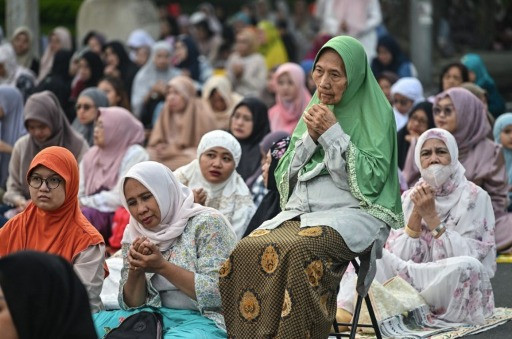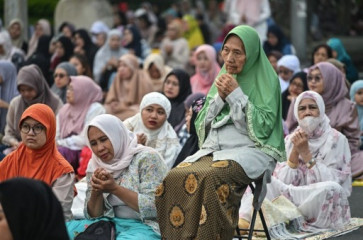Popular Reads
Top Results
Can't find what you're looking for?
View all search resultsPopular Reads
Top Results
Can't find what you're looking for?
View all search resultsDemographic dividend and the welfare of the elderly
The low coverage of social security for elderly citizens has triggered a situation where a lot of them must work for low pay.
Change text size
Gift Premium Articles
to Anyone
I
ndonesia is currently enjoying the first phase of demographic dividend with the bonus predicted to end no later than 2040. Soon after will be a new, challenging period when the number of elderly citizens will increase by around 19 percent by 2045. The government at all levels is encouraged to take measurable and necessary steps to anticipate the potential for demographic disaster.
A rapidly aging population carries bad luck in terms of national economic performance. To tackle the problem, an argument for social security protection for the elderly on an individual basis through an extended form of retirement system has come to the fore.
This argument states that when the difference between the skill level of the young and old is large enough, aggregate output in an economy where the elderly do not work is higher. Retirement is desirable in this case, and social security transfers are the means by which such a retirement is induced (Sala-I-Martin, 1996).
A couple of new laws have been passed since 2014 to ensure that elderly Indonesians receive adequate financial support. However, a full pension is still not available for informal employees who comprise 70 percent portion of the elderly population.
Only one in eight elderly individuals receives a regular pension in Indonesia. Usually, they are former civil servants and retired military personnel. The low coverage of social security for elderly citizens has triggered a situation where many must work for low pay.
Some people choose to be either self-employed in micro-enterprises or become tenant farmers, while the rest are involved in the formation of the sandwich generation, in which young people must support themselves, their children and their parents. As a result, the aging population will increasingly become a pressing policy issue needing the attention of current and future governments.
My recent work tackles the issue with arguably an effective method to ensure the prosperity of elderly citizens can be achieved. This is through aging policies that are based on the concept of a universal basic income (UBI), the most popular definition nowadays being a periodic cash payment unconditionally delivered to all on an individual basis without means test or work requirements.



















